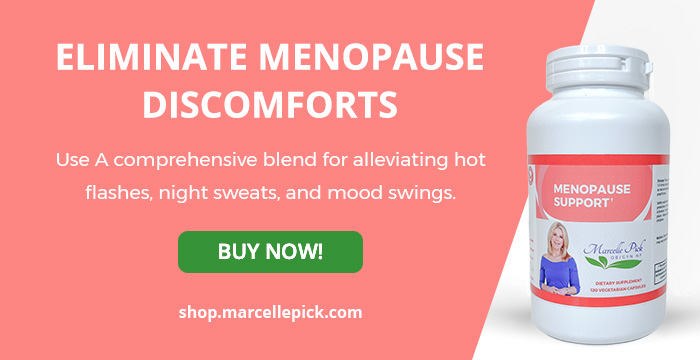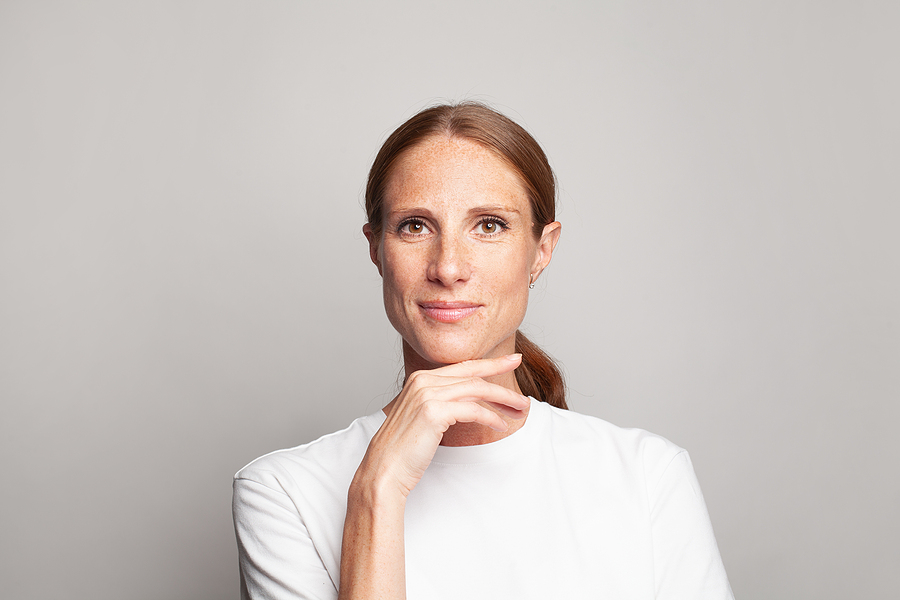Updated 12/04/2022
“I never thought I would stay on hormone replacement therapy for this long,” my patient, Rowan, told me.
Rowan had started hormone replacement therapy (HRT), as many women do, to help balance her hormones and quell her symptoms during menopause.
The truth was, she had never really loved the idea of introducing hormones into her body. But her doctor was adamant that they would help, and out of fear that she would otherwise be stuck feeling fatigued, hot all the time and moody during this period of her life, she gave it a try.
Now, three years later, Rowan came to me, amazed at how quickly HRT had become a routine part of her life.
There had been a time when she couldn’t imagine ever using hormones, and now, she struggled to imagine how she’d adapt to going without them. Would all of her symptoms come back? Would she ever be able to balance her hormones naturally?
Rowan had good reason to be hesitant. The decision to stop HRT can be a tricky one: if you go “cold turkey” you may experience symptoms that are worse than the ones you sought help for in the first place. But there are some good reasons to stop, so it’s worth taking a look at. And there are a few strategies that can help you through the transition, which I’ll share with you here.
Should you stop HRT?
Ultimately, the decision to stop (or start) HRT is a personal one. The practice has long been divisive, with some physicians advocating for its use for just about every menopausal woman, and other practitioners sounding the alarm about its serious health risks. We also now have significant research showing the benefits of HRT for certain women.
As with most issues, this one is not black and white. Many women find HRT extremely effective at improving their symptoms and quality of life. But the truth is that there are some potential health risks for some associated with HRT, including increased risk of certain types of cancer.
Beyond these risks, I believe that there’s a fundamental flaw in the way many in the medical community have thought about HRT and menopause in general.
First, menopause is not a condition, a disease, or a problem. I don’t say that to dismiss women who struggle during perimenopause or menopause: it is certainly common to experience frustrating symptoms during these times in our lives, and I don’t think those symptoms should go ignored.
But at the same time, menopause is a normal, natural part of life as a woman. So by rushing to medicate it without at least trying a more natural hormone balancing route, I’ve found that many doctors have failed to properly respect and understand their patients’ hormonal transitions.
What to expect when stopping HRT
The biggest concern I hear from my patients who are thinking about stopping HRT is that they don’t want their symptoms to come back. This is totally understandable!
Stopping HRT is different for everyone. Some women are able to come off and feel completely fine, while others will experience a flurry of symptoms when they first make the change.
The reality that coming off HRT, especially if you’ve been on it for a long time, can be quite a shock to your system. Don’t worry too much, though– there are ways to ease your body through this transition.
First of all, it’s often much easier to come off HRT gradually, rather than quitting “cold turkey”. This gives your body the chance and space to adapt over time.
Pair this transition process with natural hormonal supports, and you have a much better chance of going back to feeling like you more quickly.
Stopping HRT: If At First You Don’t Succeed, Try, Try Again
Many women seek my help because they tried quitting Hormone Replacement Therapy (HRT) cold turkey, but couldn’t deal with the explosion of symptoms, so they returned to HRT. They feel frustrated at the need to return to HRT, but glad to be able to function once again.
What I tell these women is they should learn from that setback and make another attempt at stopping HRT. But putting support in place first, then weaning off HRT slowly, brings a greater chance that they can successfully stop HRT.
You can succeed if you’re willing to put in the work
More than 80 percent of the women I help at the clinic or online have obstacles to restoring their health after they stop HRT. The most common issues are digestive problems (floral imbalance or leaky gut syndrome) and endocrine problems (insulin resistance, adrenal exhaustion, or thyroid disorders). Not surprisingly, all of these issues interfere with hormonal balance.
These problems have developed over years in the body, and can’t be resolved in a few days, but their effect can be disappointing to women who are seeking alternatives to HRT. Women often improve and make exciting progress in the first few weeks after weaning off HRT; however, some women find themselves with too many symptoms that remain. The tendency is to blame the lack of hormone and estrogen replacement and say, “This isn’t working.” But in reality, the natural alternative to HRT is working—it’s gradually healing the years that it took for damaging health habits to create the conditions in the first place.
Adrenal function, which is impacted by stress, may be one of the major obstacles to fast recovery when stopping HRT. Stress can trigger hot flashes, insomnia, weight gain, and other menopause symptoms. The sources of stress in a woman’s life, especially those who like to “do it all,” can seem beyond her control; however, we’ve seen repeatedly that women can make their lives less stressful. If you begin to take better care of yourself, you’ll get your strength and energy back. Then you can begin to make more changes that seem easier – because they are!
You don’t need to do it alone – especially in the beginning
Most women know that there are more natural alternatives to HRT, and many of those same women will spend months self-prescribing soy, dong quai, black cohosh, bioidentical progesterone, and so on. Each of these herbal or medicinal alternatives can have a positive effect, and will provide relief for you, but only if you have a few, mild symptoms. Typically, women looking for answers don’t fall into that category. Consequently, most women who self-prescribe get discouraged with the process, and then they don’t know where to turn for additional support.
Related article: The History of Hormone Replacement Therapy (HRT)
You can feel great!
One of the great things about increased understanding of the female body is that we can now view the whole of menopause as a great awakening. Remember this is adolescence in reverse. It is a time in your life to ask big questions: Who am I? What do I want to do for the next half of my life? How do I want to feel?
This is the way that nature intends for you to begin to take better care of yourself now. Over and over, I’ve seen a woman find her voice, learn more about her miraculous body, and begin making choices that work for her. It is up to you to lay the foundation for decades of health, vitality on all levels, and happiness ahead.
I also know that HRT is a GREAT option for some as well. Finding out what is best for YOU is the real answer. Working with a functional medical Practitioner to help navigate the risks vs the benefits is the best option.









